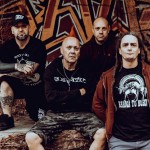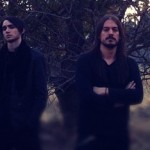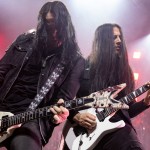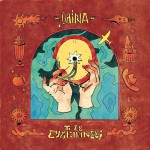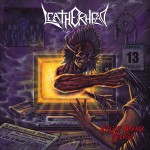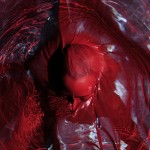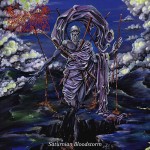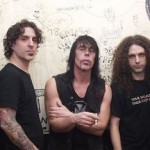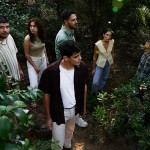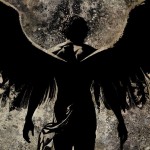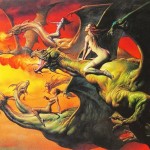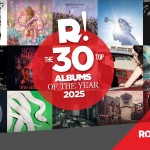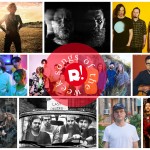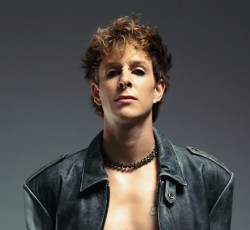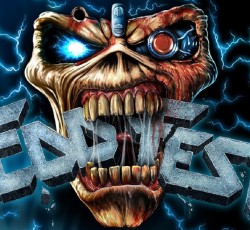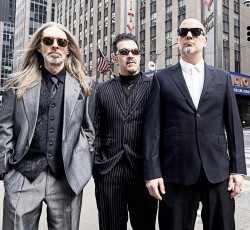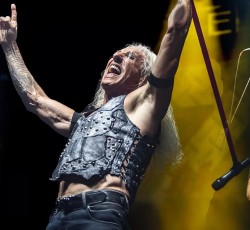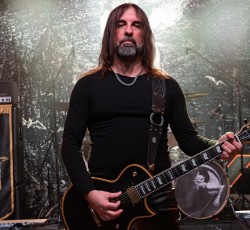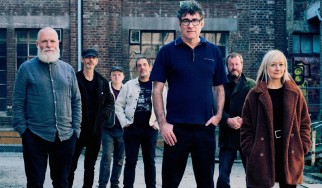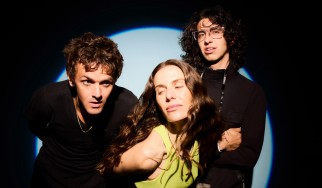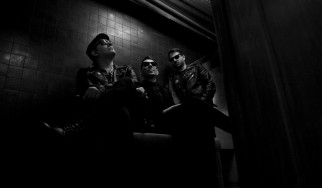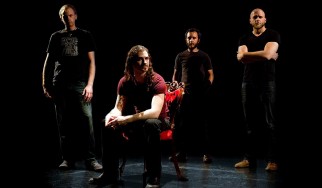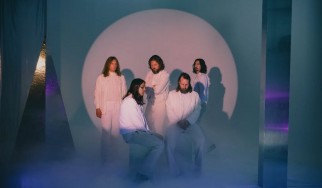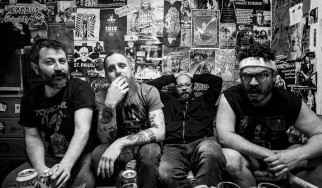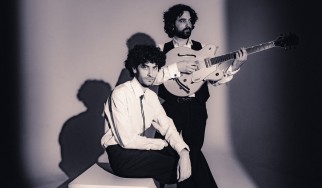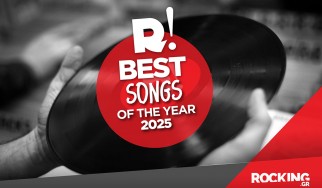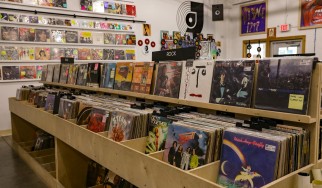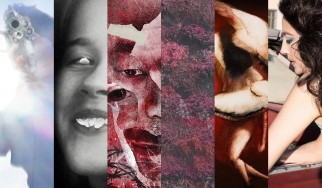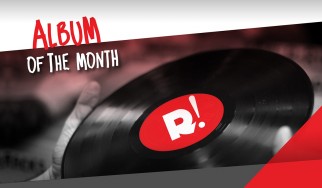Liturgy: "Black metal is the first step towards freedom"
A very special conversation with Haela Ravenna Hunt-Hendrix for the masterpiece that is "93696", music, philosophy and the big meanings of life
There's many of us who already knew how special Liturgy truly is and "93696" came as no surprise. Having said that, their new work stole our hearts and minds - as it may possibly turn out to be a career-milestone for Haela Ravenna Hunt-Hendrix and her companions - and it won our team's the Album of the Month award in March. For me there is no question: "93696" will definitely be a personal favourite this year and this is why I anticipated an interview with Haela enthusiastically.
Obviously, a creator with such an extraordinary way of thinking would reward us with an interview full of her own personality. Her replies are full, complex and meaningful, covering a lot of subjects: the challenges and the aesthetics of "93696", classical music and black metal, the significance of post-minimalism, transcendence and escapism, how she deals with love and hatred. So this is it, enjoy this remarkable conversation with one of today's metal most charismatic minds, in a chat that has enough room from Brahms to Smashing Pumpkins and Darkthrone.

Hi, my name is Antonis and I am delighted to welcome you to Rocking.gr. I hope this finds you in good health and good spirits! So, first of all, with "93696" being released for a few weeks now, how has the reception been so far from the press and fans? Did you have any specific expectations this time on what people would think of such an ambitious album?
I'm very happy with the reception. People mostly seem to be taking the album seriously for what it is, like I think they can tell how hard we worked on it and seem to appreciate that.
I wanted the recording to sound like it was from the past, like kind of from the 80s, but also like an old symphonic classical music from the 40s
83 minutes of music, dozens of instruments/timbres/aesthetics/musicians. What were the challenges of putting everything together production-wise and what did you want to achieve sonically? I think that Albini's and Manchester's work is brilliant, by the way!
Yes, very complex arrangements and compositions, and on top of that recorded to tape (directly, with no computers), which forces you to get things right live because it's much more difficult to edit. We had to be very prepared to record, and the mixing was really quite difficult, because the uncompressed way Steve records undoes a lot of what traditionally makes metal and rock. Seth was really masterful in bringing back some of the brightness in the mix while letting the recordings breathe. Both of them were wonderful to work with. I wanted the recording to sound like it was from the past, like kind of from the 80s, but also like an old symphonic classical music from the 40s. I feel like we achieved that.
Sounds like the tightest line-up you ever had - Didkovsky's drumming sounds insane! What is your line-up's contribution to the music?
Yeah, Leo is an incredible drummer, and Mario and Tia are fantastic musicians as well. I compose the music all on my own very meticulously, but it really comes to life through all the hard work and talent of the group. We all get along really well too, which makes it super fun.
"93696" is a homage to "Mellon Collie and the Infinite Sadness"
PR mentions a "punk meets classical" approach. I didn't expect the more straightforward, almost sludgy riffs we find in the album. I also sensed some americana-sounding parts here and there. Can Liturgy's musical universe be expanded further towards unpredictable directions?
The Smashing Pumpkins are a major influence on me, they're the first band I ever loved, in a lot of ways this album is a homage to "Mellon Collie and the Infinite Sadness". There's a lot of music that I love that informs Liturgy, in the future I see more and more relaxation of the need for it to fit the mould of past projects.
When I started Liturgy, I was bringing black metal into a different context, using it to reactivate the post-minimalism and totalism from an earlier generation with acts like Branca and Swans
Somehow related with my previous question: I have this impression that the components of your music - metal, classical, opera, trap - were there from day one and that each of your albums just sheds light from a different angle. Would you agree? How do you see Liturgy's musical evolution so far in these 15 years of your existence?
Yes, absolutely, though DIY art punk and screamo are a major element in the music too that not everyone hears. That was the scene I was a part of in high school, listening to At the Drive In, Converge, Lightning Bolt, Pg. 99. Before then I loved Aphex Twin and Godspeed You Black Emperor. I was never part of a metal scene, when I started Liturgy I was bringing black metal into a different context, using it to reactivate the post-minimalism and totalism from an earlier generation with acts like Branca and Swans. I'd studied composition and music theory, and the formal structure of classical music is very much a part of the early Liturgy albums even though they don't have classical instrumentation. I see all these genres as materials for making classical music by other means.

You have created a whole philosophical-theological platform for your art and Liturgy seems to be just a part of it. First of all, do you think that people can enjoy Liturgy's music without being familiar with the ideas involved? Or do you think that the listener should try and familiarize with the concepts behind the music for the real experience? Secondly, are you happy with the number of people that watch the relevant videos and get involved ideologically?
I'm driven to create a world that is musical, artistic and conceptual, and which is evolving over time. I think of it as a sort of environment people can enter and then move towards what draws them in.
I always hope that the music unlocks a sense of how meaningful life can be
In what ways could Liturgy's music and ideas help people in their everyday lives?
I always hope that the music unlocks a sense of how meaningful life can be and how much potential people have, and that they owe it to themselves to fulfill it.
I think these (minimal) techniques aren't so common in metal because they're so difficult to execute
In my review, I insisted a lot on the minimalistic influences in your music - I sense a lot of Reich/Glass inspired harmonies here and there - and I think that there are very very few metal artists that have used influences of this sort. Would you agree? And if yes, why do you think metal has been a bit slow to incorporate such experimental techniques?
Yes, Reich and early Glass are huge for me. I think these techniques aren't so common in metal because they're so difficult to execute, to be honest. People think of extreme metal as virtuosic, but most of it is much easier to play than it sounds. By contrast minimalism is much more difficult to play than it sounds
Since I mentioned the famous New York minimalists, I would love to know who do you think are your biggest inspirations, from the metal and the non-metal musical world? The ones that shaped you the most?
I've mentioned a number of non-metal ones, to which I would add Brahms, Stravinsky and Scriabin. As for actual metal, Metallica is actually a huge influence, so much so that I tend to forget to mention it. Emperor and Darkthrone, Graveland, Vlad Tepes, Rorschach.
Metamorphosis and Catharsis: Would these be the key words and core ideas behind your art? Also, is to transcend the same as to escape for you?
No, I think those are from the press release that the label wrote!! And yes, I associate transcendence with escape, escape from emotional slavery in particular.
I always saw black metal as a first step towards freedom, a negation of superficial convention
"93696" refers to your interpretation of Heaven. Seeking the Light through Black Metal music seems like an oxymoron to some. What do you think about black metal these days?
I always saw black metal as a first step towards freedom, a negation of superficial convention, but then wanted to push it another step, towards affirmation. I think the light is there in some more traditional black metal, hidden maybe, but there.

I think you have received amazing amounts of love/respect and hate in your career - as every true pioneer, I think. Did you ever feel disappointed/tired of how negative and conservative society can be or does this only fuel and motivates you more?
It's not what I would want at all, ha, I would much rather just be loved and appreciated. But the drive I have to create is very specific and satisfying to obey. I'm glad people are more receptive to it now.
If people want to interact more with your art/philosophy, what is the best way to do it?
Following me on Instagram, Twitter, Substack and YouTube mostly. I have another art show coming up in New York later this year, but it's hard to get to from other places and there will be documentation online.
From the bottom of my heart, I thank you for your music and for your time, wishing you all the best! I hope we see you in Greece!
Sadly we won't be playing in Greece this time but I hope next year we can!

